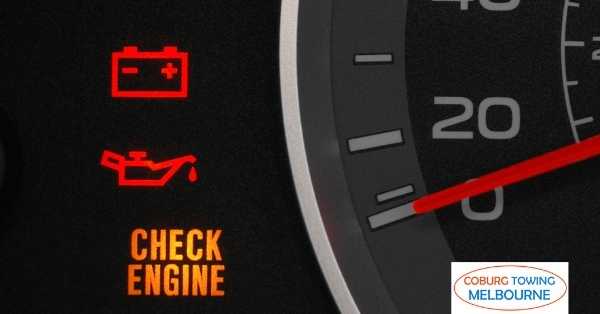The check engine light is one of the most frustrating of all dummy lights for many vehicle owners. The indicator is a passive aggressive way to alert you that there is a problem, and you have to figure out what it is. Some people ignore the check engine light and wait for other significant symptoms to surface so they can detect the problem more easily. That’s not good because by doing this, you could be potentially allowing minor car troubles to manifest into bigger ones.
Following are the top 7 reasons your check engine light comes on:
1. Oxygen Sensor Failing
O2 sensors manage emissions and make sure that the engine keeps performing at optimal efficiency levels. These sensors constantly monitor gasses that leave the engine. For efficient operation, an engine requires exact ratios of air and fuel. Malfunctions drop the fuel economy significantly and also negatively affect the performance of engine.
2. Ignition Coil Problems
The purpose of ignition coils is to ignite the spark plugs by taking the required electric current from the battery. Without correctly functioning spark plugs and coils, the electric current powering the vehicle’s engine are disrupted. All the parts in the electrical system of the vehicle take a lot of wear and tear because of the electricity passing through them.
3. Spark Plugs and Wire Problems
Wires and spark plugs are critical components of the electrical system of your vehicle. Symptoms of problems with wires and plugs include engine misses or pings, rough engine idling, erratic engine power including power surges and power losses. Ignoring plug wire and spark plug problems can permanently damage your vehicle’s catalytic converter which can lead to very costly repairs.
4. Mass Airflow Sensor Malfunctions
The mass airflow sensor measures the air that comes into the engine and calculates how much fuel to add to the mix. Without correct information from the mass airflow sensor, the Engine Control Unit cannot correctly deliver or balance the right amount of fuel to your engine. As a result, the engine’s performance is affected badly and fuel efficiency is reduced.
5. Faulty Evaporative Emission Control System
The EVAP (short for Evaporative Emission Control system) of a vehicle keeps gasoline vapors from the gas tank and fuel system from releasing into the air. Faulty gas caps, defective valves, and leaking vacuum hoses and vents all contribute to EVAP system problems.
6. Ports and Valve of Exhaust Gas Recirculation are Dirty
The EGS (short for Exhaust Gas Recirculation system) helps your vehicle run more efficiently by controlling its emissions. Engine misfires, hesitation, and rough idling indicate an EGR problem. EGR problems lead to reduced engine performance and fuel economy. Often the components of Exhaust Gas Recirculation system are clogged or dirty.
7. Dead Battery and Charging System Problems
Most vehicles have computer systems that monitor voltage in battery and electrical systems. When anything appears amiss in the charging system of the vehicle, the computers activate the check engine light. Car batteries age rapidly if the temperature in the engine compartment is constantly high.
We at Coburg Towing strongly promote and encourage safe driving. We also know that sometimes things go wrong and you may need roadside assistance in the future. When you need help with your vehicle while on the road, Coburg Towing offers fast & reliable towing and roadside assistance – everywhere in Melbourne. Contact us for your Commercial Towing Services Melbourne.
Your Local Tow Truck Service in Melbourne Northern Suburbs.
Coburg Towing Melbourne located near the Brunswick East. Please check below map.


Recent Comments